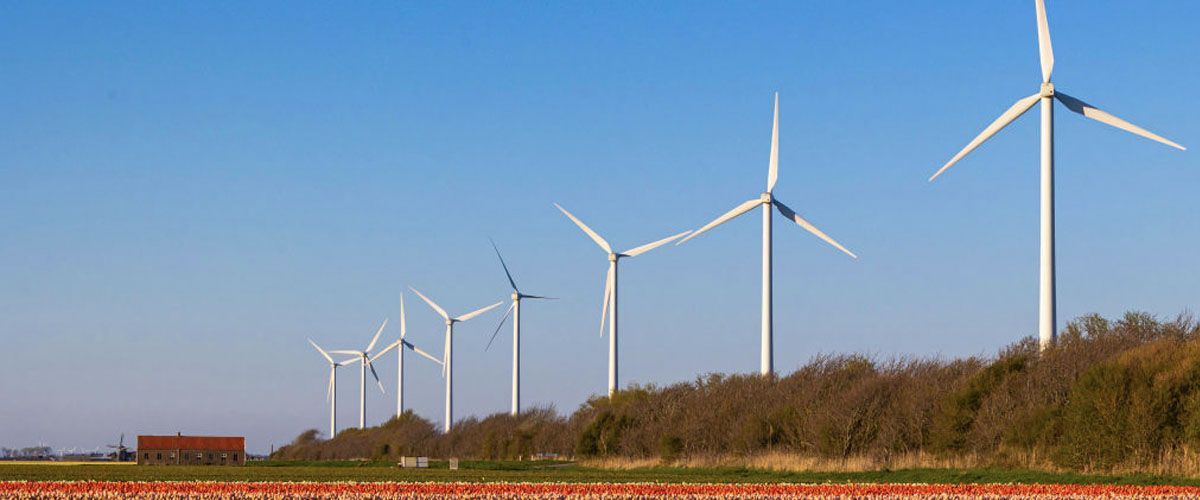Ganadores del concurso (2023)

Daniel Arce Carnero
Universidad de León
Comercio Internacional
UN CAMINO HACIA LA SEGURIDAD ENERGÉTICA Y SOSTENIBILIDAD
The EU’s dependence on imported fossil fuels, particularly from Russia, raises concerns about energy security and the economy’s vulnerability to geopolitical events. The region is committed to transitioning to renewable energy sources to reduce its dependence and achieve its climate targets, with the REPowerEU policy focused on accelerating this transition. The importance of US aid in meeting the EU’s energy requirements is underscored, but the EU needs to establish a diversified network of energy suppliers to counteract potential energy market shifts. The region’s lack of domestic fossil energy sources presents an opportunity to hasten the adoption of renewable energies.
Energy is a fundamental driver of national economies, and its availability and affordability are crucial for the sustainable growth of societies. As the world’s demand for energy continues to escalate, the challenges associated with meeting this demand become increasingly complex. This is further compounded by the fact that the global energy system is currently experiencing one of the most significant shocks since the oil crisis of the 1970s.
The EU energy sector is heavily dependent on imported fossil fuels, especially from Russia (almost 40% of total EU energy consumption in 2021), which raises concerns about energy security and the economy’s vulnerability to geopolitical events, especially after the Ukrainian invasion. Therefore, the EU is forced and committed to transitioning to renewable energy sources, to reduce its dependence on fossil fuels and achieve its climate targets. One example of this commitment is the REPowerEU policy, primarily focused on accelerating the 2030 plan to achieve European independence from Russian sourced oil and gas.
The focus on renewable energy has shifted from being primarily driven by environmental concerns, to encompassing national security considerations. This shift is driven not only by the potential risks associated with the side effects of climate change, such as desertification or extreme weather events but also by geopolitical conflicts arising from ownership of key resources, notably water and fuel.
Given Europe’s lack of domestic fossil energy sources, particularly in terms of gas and oil, the options to reduce energy dependency are either to retreat from coal-based energy generation or to advance renewable energy production. The available evidence indicates that Europe has made a firm and enduring commitment to renewable energy. Nevertheless, it is essential to prioritize ensuring energy security before proceeding with this transition.
Additionally, the situation is anticipated to deteriorate during the upcoming two winters. This is due to the closure of the Nord Pipeline in June, which supplies a significant portion of central Europe’s energy requirements. Furthermore, the energy aid from the United States is expected to cease, as resource limitations render it unsustainable.
Additionally, China’s re-entry into the international energy market, following the decline in energy consumption due to the suspension of the COVID-19 measures, will also contribute to the exacerbation of the situation.
To underscore the importance of US aid in meeting the EU’s energy requirements, it is worth noting that the US is currently the EU’s primary alternative to Russia’s energy sources, particularly concerning petroleum. Although Norway has recently emerged as the leader in natural gas exports to the EU, doubling Russia’s exports in the third quarter of 2022, the US remains a significant player in this matter, outpacing Russia’s gas exports to the EU.
Nevertheless, sustaining the energy requirements of the EU solely with the US supply is not a feasible option. The main reason is not just a matter of prioritizing its domestic energy needs, but also a matter of its energy system importation. The US energy gas market works with liquefied natural gas (LNG), which is transported via shipments, rather than by pipelines. This method provides greater flexibility since the US can import gas from any country.
Currently, all the available gas supplies from the US are going to the EU. However, after the end of China’s Covid-19 restrictions, its market will require the same amount of energy as before. Therefore, no new suppliers to the US LNG system will be available until 2026, when they plan to invest in new LNG projects in cooperation with French energy group Engie S.A. As a result, the EU may need to seek alternative sources of energy that meet the energy trilemma of availability, affordability, and sustainability.
In conclusion, recent events underscore the criticality of achieving energy self sufficiency or at minimum, establishing a diversified network of energy suppliers to counteract potential geopolitical shifts. This underscores the vital importance of energy security, as a shortage of energy can pose a significant threat to national economies, public health, and stability. The European Union’s shortage of fossil fuel sources may be considered a disadvantage, but it presents an opportunity to hasten the adoption of renewable energies. This approach is a practical means of reducing the EU’s dependency on imported fossil fuels and meeting its climate objectives. Although we cannot choose the natural energy sources available in our region, we do possess the skills and motivation to accelerate the transition towards future energy sources. Thus, it is up to us to take advantage of the opportunity for change that this situation is bringing right now.





